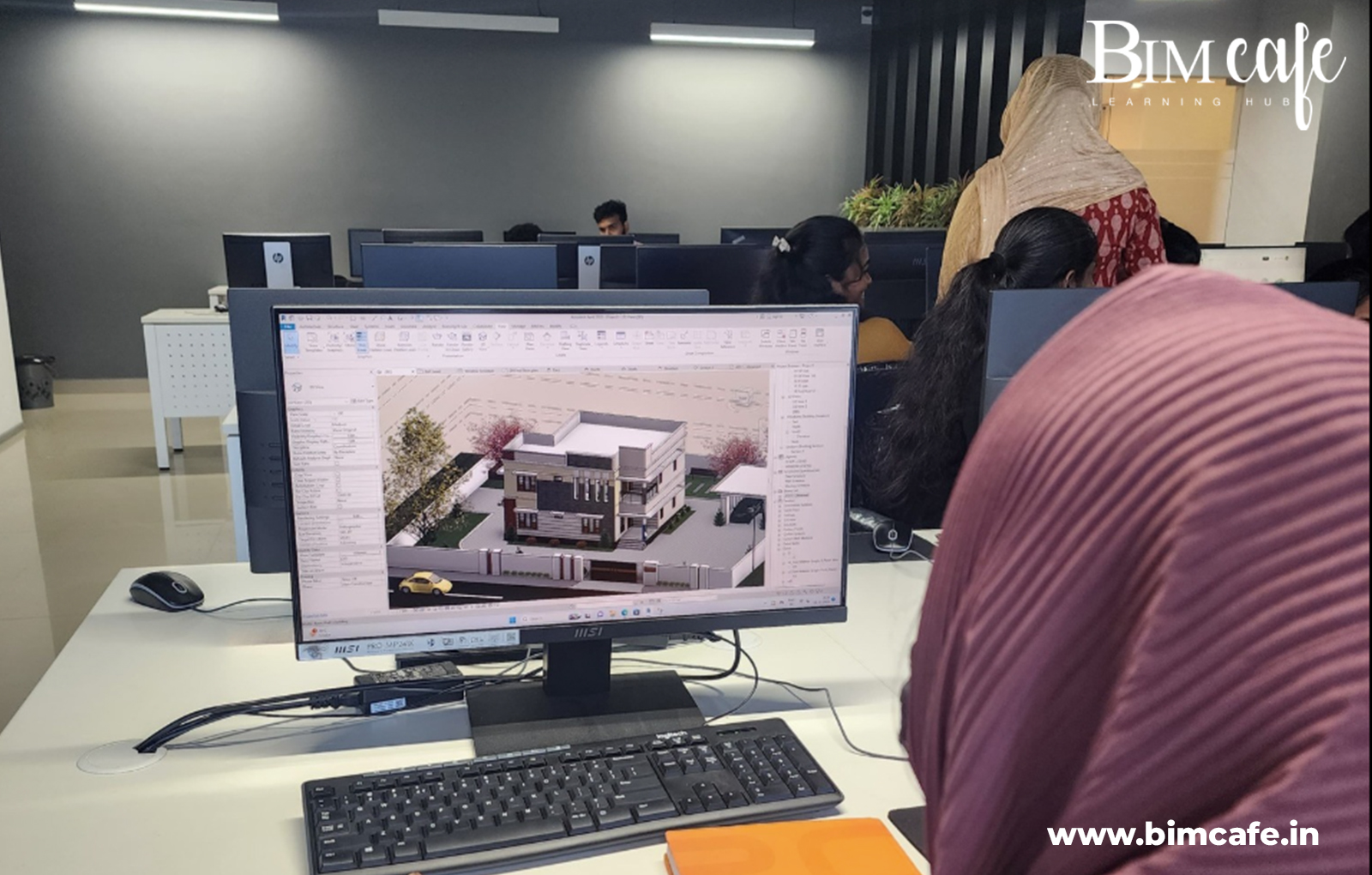
Author: Devika R
June 6, 2025
3 min read
In today’s digital-driven construction and infrastructure industries, Building Information Modeling (BIM) has evolved into a vital component of project planning, design, and execution. As the demand for smart, efficient, and collaborative construction methods increases, so does the demand for professionals skilled in BIM. The BIM Engineer is at the center of this revolution, playing a critical role responsible for integrating technology with architecture, engineering, and construction. If you’re aiming to become a successful BIM Engineer, building a diverse set of technical, analytical, and collaborative skills is essential. Here are ten must-have skills that every aspiring BIM Engineer should develop to thrive in this competitive field.
1. Mastery of BIM Software Tools
A BIM Engineer must be highly proficient in leading BIM software platforms. Autodesk Revit is the most widely used tool, but others such as ArchiCAD, Tekla Structures, Bentley Systems, and Navisworks are also industry favorites. These tools help BIM Engineers create, manage, and collaborate on detailed digital models of a building’s architecture, structure, and MEP (Mechanical, Electrical, and Plumbing) systems. Mastering these tools is foundational to your success.
Pro Tip: Keep up with software updates and pursue certifications to validate your skills.
2. 3D Modeling and Visualization Skills

The core function of a BIM Engineer involves building accurate and information-rich 3D models. These models not only represent the physical dimensions of a building but also incorporate data related to materials, schedules, and costs. Strong 3D modeling skills allow you to visualize every project component and present it clearly to clients, stakeholders, and construction teams. Enhancing your skillset with tools like Lumion, Enscape, or Twinmotion for rendering and animation can make your models more realistic and engaging.
3. Understanding of Construction and Engineering Concepts

A successful BIM Engineer bridges the gap between design and real-world construction. Therefore, understanding basic construction methodologies, sequencing, safety protocols, and building codes is crucial. Having this knowledge ensures your BIM models are not just visually appealing but also practical and constructible on-site. It enables you to forecast construction challenges and optimize the building process digitally before it begins physically.
4. Clash Detection and Interdisciplinary Coordination
One of the biggest advantages of BIM is the ability to identify conflicts between various building systems (e.g., plumbing intersecting with structural beams). As a BIM Engineer, you’ll use tools like Navisworks for clash detection to ensure all disciplines’ architectural, structural, and MEP work harmoniously. Coordination among teams is a core responsibility. You’ll act as a bridge between architects, engineers, contractors, and other professionals to resolve design discrepancies before they affect the construction timeline.
5. Data Management and Information Organization
Modern BIM models are rich with data from room dimensions and materials to lifecycle information and maintenance schedules. A BIM Engineer must be skilled in organizing, storing, and managing this data efficiently. Knowledge of Common Data Environments (CDEs) like BIM 360, Trimble Connect, or Aconex is important. Proper data management ensures accuracy, minimizes redundancies, and streamlines communication across teams.
6. Familiarity with BIM Standards and Protocols
BIM implementation must follow specific standards and guidelines. A proficient BIM Engineer should understand and apply international standards such as ISO 19650, PAS 1192, or country-specific BIM mandates. These standards help maintain consistency, quality, and interoperability between different software and teams. Familiarity with creating and following BIM Execution Plans (BEPs) is also a highly desirable skill.
7. Analytical Thinking and Problem Solving
Every construction project presents unique challenges. Whether it’s solving spatial conflicts or optimizing energy efficiency, a BIM Engineer must possess strong analytical thinking and problem-solving abilities. Using tools such as energy modeling software, structural analysis tools, and simulations, BIM Engineers can identify inefficiencies and suggest improvements early in the design phase, saving both time and money for stakeholders.
8. Collaboration and Communication Skills
BIM is a collaborative approach. A BIM Engineer must be able to communicate clearly with architects, structural engineers, project managers, and on-site construction teams. You’ll often need to explain complex technical data to non-technical stakeholders. Effective communication both verbal and visual is key to ensuring that everyone involved understands the model, changes, and goals. Presentation skills and technical writing are also helpful when documenting workflows and decisions.
9. Continuous Learning and Adaptability
Technology in the construction industry is evolving at a rapid pace. New BIM tools, plugins, workflows, and automation features are introduced regularly. To stay relevant, a BIM Engineer must be committed to lifelong learning. Attend webinars, take advanced courses, follow industry blogs, and participate in online BIM forums. Your willingness to learn and adapt will set you apart and keep you at the forefront of the industry.
Bonus Skill: Learning scripting languages like Dynamo (for Revit) or Python can help you automate repetitive tasks and improve efficiency.
10. Project Management Awareness
While you may not lead projects immediately, understanding basic project management principles is crucial. A BIM Engineer often works with construction schedules, budgets, procurement, and site coordination. Having awareness of timelines and deliverables ensures your BIM tasks are aligned with the broader project goals. Familiarity with tools like Microsoft Project, Primavera P6, or even integrated BIM-ERP solutions will give you an edge when working on large-scale projects.
Final Thoughts

The role of a BIM Engineer goes far beyond 3D modeling, it’s a dynamic profession that blends technical expertise, construction insight, teamwork, and innovation. Whether you’re a student aspiring to break into the field or a professional aiming to upskill, mastering these ten core competencies will position you for long-term success. As the world embraces digital construction, smart cities, and sustainable infrastructure, BIM continues to shape the future of the built environment. By building a strong skillset, developing a standout portfolio, and connecting with the right communities, you can launch a thriving career in BIM. For structured learning, expert resources, and career-focused support, explore BIM Cafe Learning Hub — an Autodesk Authorized Academic Partner offering project-based BIM training and 100% placement assistance.
Start your journey today, and take the first step toward becoming an industry-ready BIM Engineer!





